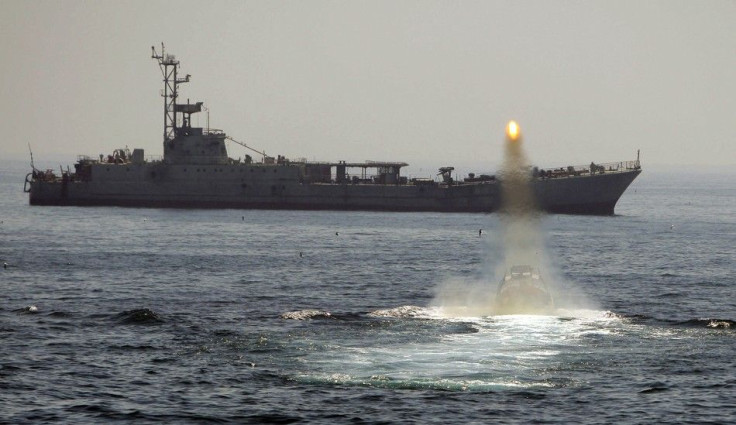Strait Of Hormuz Fills With Iranian Warships, But This Is Only A Game

Iranian warships crowded into the critically important Strait of Hormuz on Friday, but naval officials assured the world that there is nothing to fear -- these are maritime exercises, not military maneuvers.
Friday marked the beginning of Iran’s six-day Velayat 91 war games. There is nothing particularly novel about these drills; the Velayat 90 exercises were held just over a year ago, and Velayat 89 took place 19 months before that.
Even the United States, Israel and their allies participated in war games in the area this September; the IMCMEX-12 naval exercises in the Gulf focused on clearing sea mines.
But many in the West are wary of any Iranian defense activities in the strait, given the waterway’s immense commercial and geopolitical significance. The Strait of Hormuz curves sharply between Iran and Oman, at one point narrowing down to a mere 21 miles across. Its small size belies its critical importance to world commerce, especially when it comes to oil.
“The Strait of Hormuz is the world's most important oil chokepoint due to its daily oil flow of about 17 million [barrels per day] in 2011,” reports the U.S. Energy Information Administration. “Flows through the Strait in 2011 were roughly 35 percent of all seaborne traded oil, or almost 20 percent of oil traded worldwide.”
As Western sanctions against Iran tighten in response to the regime’s pursuit of nuclear technology, Tehran sees the strait as a key bargaining tool.
“If Iran oil is banned, not a single drop of oil will pass through Hormuz Strait," threatened Vice President Mohammad Reza Rahimi in December of last year.
Since then, however, that rhetoric has died down and other officials have vowed to keep the waterway open as long as Iranian ships can still use it.
If Iran ever followed through on threats to disrupt oil shipments in the strait even temporarily, energy prices could skyrocket. Some analysts have predicted that the price of oil could increase by 50 percent within a matter of days, according to the New York Times.
But there’s no cause for alarm just yet, according to Tehran. Even though the Navy has urged caution to any ships that had planned to pass through the straight during Velayat 91, Navy Rear Admiral Amir Rastegari told state media on Saturday, “the Navy has issued no warnings. In accordance with the international norms, announcements should be sent for the information of the ships passing by during any military drill in order to prevent any potential damages.”
© Copyright IBTimes 2025. All rights reserved.






















